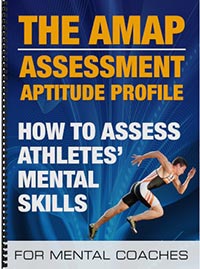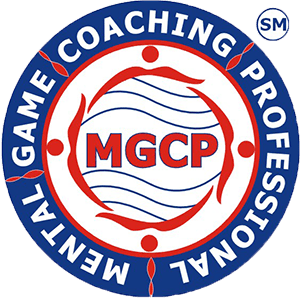
Athletes Who Learn Mental Skills Quickly
One good problem to have as a mental coach is when your athletes improve quickly with mental coaching…
Why would this be a problem? First, quick story….
I just started working with a high school aged club volleyball player who was focusing on all the wrong things, such as worrying about her teammates, coach, and parents in the stands.
In addition, this athlete was over analyzing mistakes and trying to apply a “fix” in the middle of a match, which as you know is not ideal.
I started the first session with a simple lesson on how to focus on the process and refocus–basic stuff that you and I do all the time.
To my surprise, at the start of the second session this week, her mom says that she played her best volleyball all season in the last tournament.
And the athlete reported she was very focused on the correct performance cues and was able to refocus quickly…
So I’m thinking, “Great, quick results with this athlete” which is a little unusual since we didn’t even get through the entire first lesson.
Why is making quick improvements with your athletes a problem?
The problem is that athletes are less motivated to do the mental coaching once they think they are back on track… They think they are fixed and don’t need the coaching…
I noticed the athlete was not as attentive and looked bored in the second session (okay, maybe it was my monotone voice).
The other problem is that she thinks all she has to do is focus on the right cues and all is solved. As you know it’s not that simple. It just happened to help her a lot in the last tournament.
Thus, the athlete might not take full responsibility and want to improve other parts of her mental game, such as fragile confidence, over thinking her mistakes, and lack of trust in her skills during competition.
That’s why in this case, it’s a good problem to have–she made super fast improvements, but might not be as interested in the remaining sessions (we offer packages of 4 sessions minimum).
This is an example of many stories I share with your during the MGCP course–stories and case studies that can help you with your mental game coaching…
Related Mental Coaching Articles
- Learn From Mistakes I Made
- Become a Mental Coach or Sports Psychologist
- Lessons from Bob Rotella in Sports Psychology
Mental Coach Assessment System

If you help athletes improve their mental game and want to be more effective with helping them build mental toughness, but don’t have a proven system for identifying and assessing your athletes’ mental game, I can help you…
I view this assessment as a way to “interview” athletes before they come in for coaching–and to improve organization and speed up the coaching process. Today, I call it the Athlete’s Mental Aptitude Profile or AMAP for short. Now you too can learn how to use the AMAP Assessment system with your athletes…
The AMAP System teaches you how to easily identify your athletes’ mental game challenges, what mental game issues to look for when reading the AMAP, and how to do a summary of the AMAP. In addition, you’ll also get follow up questions to ask and how learn about how to drill down on relevant topics.
